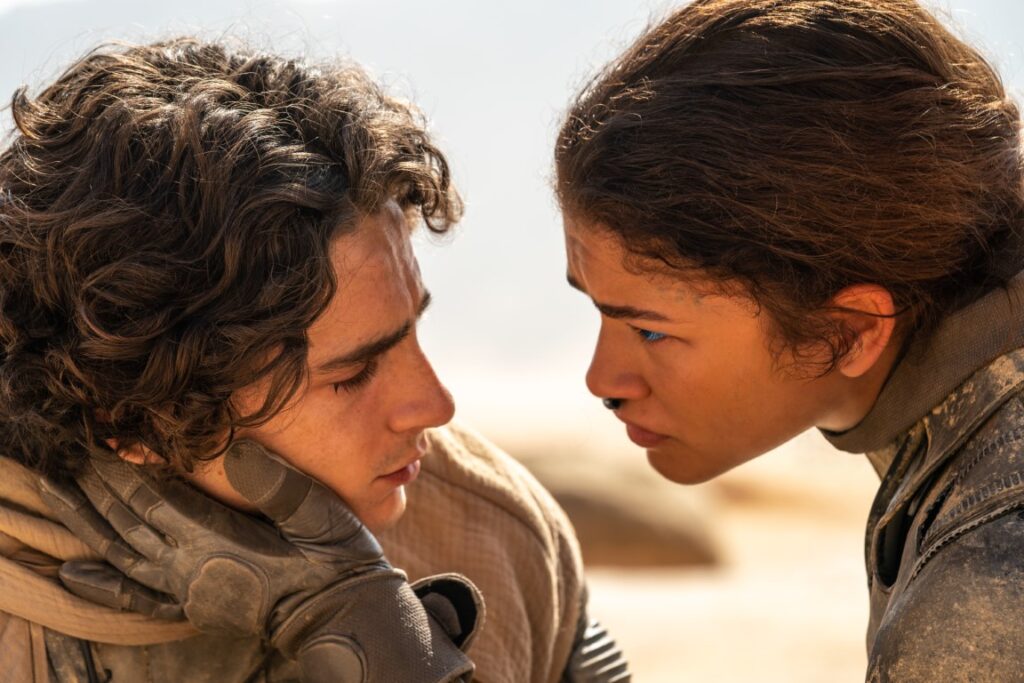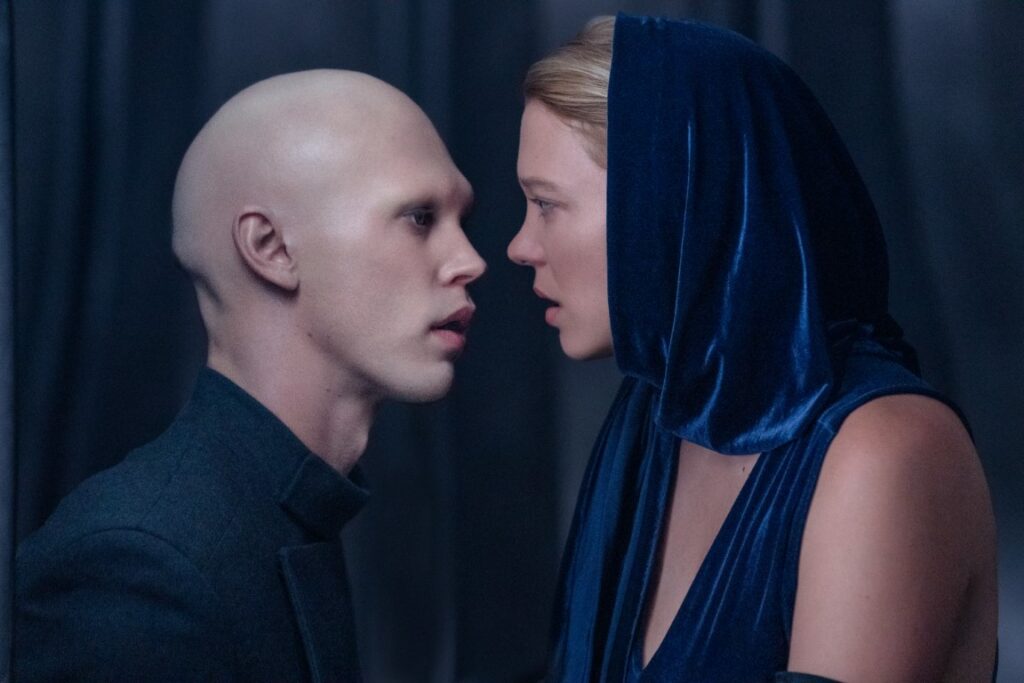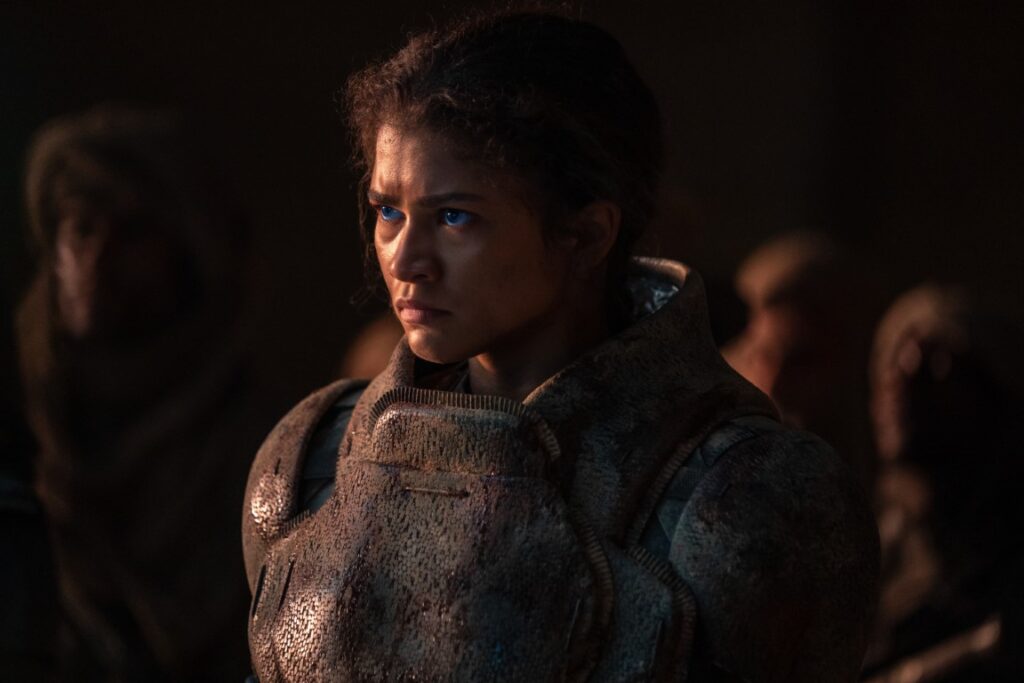Read also:
How to Watch FX Live Without CableHow To Watch AMC Without CableHow to Watch ABC Without CableHow to Watch Paramount Network Without CableDenis Villeneuve finishes his epic two-part adaptation of Frank Herbert’s novel with sprawling scope and thorny politics.
It’s really a miracle that the first of Denis Villeneuve’s Dune films penetrated the public consciousness as well as it did. It was released amid a worldwide pandemic; it was an IMAX-ready blockbuster that was simultaneously dropped onto people’s streaming subscriptions same-day; it’s based on a dense, impenetrable sci-fi novel Villeneuve patiently chose not to wholly adapt in one film. The results, blessedly, were commercial and critical success and a host of technical Oscars the following year.
That success was enough to secure Dune: Part Two, a chance for Villeneuve to complete his vision of Frank Herbert’s seminal work of political science fiction. Where Part One worldbuilds, Part Two barrels down the road of its inevitable conclusion in satisfying style, even as it makes some noted changes from the novel or any previous adaptations — some for the better, some for the worse.
Picking up not long after the events of the first film, Part Two follows the recently-outcast heir to the throne of House Atreides, Paul (Timothée Chalamet) and his mother, Jessica (Rebecca Ferguson), as they attempt to ingratiate themselves to the native Fremen of Arrakis who’ve taken them in after the brutal destruction of their house by the rival Harkonnens. Luckily for them, the ground has been laid for their integration by thousands of years of religious indoctrination by the Bene Gesserit, who’ve spun wild tales of a Messiah, a Voice from the Outer World, who will lead the marginalized people of Dune to freedom. Paul sees a path to getting his revenge, and usurping the Emperor (Christopher Walken, compelling in his frailty), through the Fremen’s “desert power” and positioning himself as said savior. But such a path may lead him down choices that would spell doom for the universe.

It’s this dilemma that offers the emotional and thematic core to Dune: Part Two, a more character-driven piece than the plot- and atmosphere-heavy setup of the first. Villeneuve is, to some people’s delight and other’s consternation, a remarkably literal director: He tends to show us what’s on the page, albeit in staggering visual style. Greig Frasier’s cinematography is still stunning, capturing Patrice Vermette’s production design and Jacqueline West’s angular, imaginative costumes with remarkable sweep — not to mention the stunning, sandy vistas of Jordan standing in for Arrakis. Hans Zimmer’s score, appropriative as it can feel at times, is still suitably booming and bass-heavy; no one’s working harder than him to sell the capital-I Importance of what you’re seeing.
But amid all the visual and aural mastery on display (adding my voice to the chorus that predictably shouts, “see this in the largest theater you can”), Dune: Part Two uses all this spectacle to tell a jagged spin on the old hero’s journey. Its first hour commits itself to settling Paul and Jessica into the ecosystem of the Fremen — one heavily informed by the language, garb, and customs of Arabic peoples, though the film still frustratingly leaves MENA actors out of the main cast. (A few show up as minor Fremen council members, and make an immediate impression.) Still, these early scenes work well to show Paul’s growing mastery of the Fremen ways, as well as his budding relationship with Fremen warrior Chani (Zendaya).
The supporting cast is just as expansive as the first, even as half of that film’s cast was slaughtered in the previous film. But everyone gets their moments to peek out of the shadow of Paul’s growing cult of personality, and their most interesting angles come from the ways they play their part in his ascension. Fremen leader Stilgar (Javier Bardem) quickly grows to believe his part in the prophecy, and his belief in Paul complicates their relationship in fascinating ways. Jessica is admittedly quickly sidelined as she becomes the tribe’s Reverend Mother, but remains in the shadows, plotting and paving the way for her son’s rise.

Meanwhile, new characters like the Princess Irulan (Florence Pugh) and Lady Margot Fenring (Léa Seydoux) investigate the goings-on of Arrakis from the other side of the fence. Frustratingly, the Harkonnens themselves get little to do besides play grimy villains: apart from Dave Bautista’s terrifying impotence as the Beast Rabban, the focus turns to Austin Butler’s bald, sneering Feyd-Rautha, who pairs an imposing physicality with a Scandinavian growl reminiscent of Stellan Skarsgård’s slovenly Baron. (He’s a great addition, even as, just in the book, he kind of exists just to give someone for Paul to definitively punch at the end.)
But the most interesting angle, amid all the well-staged action and compelling gadgets and creatures, is Chani’s, which takes engrossing deviations from previous takes on the material. In the book, and all previous adaptations, Chani is an uncomplicated love interest to Paul, one committed to the Fremen cause and the soon-to-be father of her children. Here, the twists and turns of prophecy take their toll on Chani; she sees the pull Paul has on her people, and the dangerous path he must go down. Where Part One was Paul’s story, the back half of Part Two very much zeroes in on Chani as the emotional center of the piece — looking with clear-blue eyes at the person Paul must become to accomplish his goal, and the deep, painful cost of victory.

Amid these heady ideas linking religious fanaticism and geopolitics are some of the most dazzling action sequences we’ve seen in science fiction in decades: Harkonnen troopers floating up and down mountains at sunrise with gravity boosters, giant sandworms snaking through the desert towards unsuspecting prey, gladiatorial fights cloaked entirely in black and white with ink-blot fireworks bursting overhead. The world of Dune as presented here is beautiful and terrifying in equal measure, a universe in desperate need of an enema. Villeneuve and co-writer Jon Spaihts, to their credit, take Herbert’s more cerebral ideas seriously, sneaking them into something akin to a four-quadrant blockbuster — teasing a universe where the hero’s victory might just make the universe even uglier.
For all of its mastery, there’s a fair bit that still doesn’t work — some changes from the book detract rather than embellish (characters are excised, or their births are delayed, for the hopefully inevitable conclusion to Paul’s story in a future movie), and there’s a chugging sense of inevitability that robs a sense of stakes from the proceedings. But that also feels like the point; like Paul, we all know where this story will end up, and the tension comes from the faint hope that somehow, somewhere, he can turn the tide of holy war while still earning justice for his family.
The difficulty in adapting Dune is that it’s a story about the inevitability of empire — Part One points out the short span of time even ostensibly virtuous kingdoms have before they’re usurped, and Part Two demonstrates the other end of that cycle: revenge, mercilessness, and fanaticism. Villeneuve’s bold, brash presentation can sometimes feel bereft of personality, but it’s not short on vision, which it has in spades. I was cautious about overpraising the first Dune on release, recognizing that it felt like half a movie. With Part Two, that story feels, in a sense, complete, and it’s now possible to bask in its horrifying wonder.
Dune: Part Two rides Shai-Hulud into regular and IMAX theaters on March 1st.